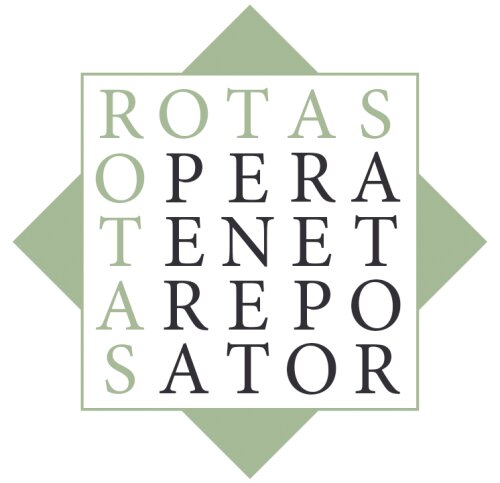Best Admiralty & Maritime Lawyers in Rome
Share your needs with us, get contacted by law firms.
Free. Takes 2 min.
List of the best lawyers in Rome, Italy
About Admiralty & Maritime Law in Rome, Italy
Admiralty and maritime law, often simply referred to as maritime law, is a distinct body of law governing nautical issues and private maritime disputes. In Rome, Italy, this legal domain is crucial due to the country's extensive coastline and deep-rooted maritime traditions. Italian maritime law is influenced by international conventions and European Union regulations, addressing issues such as shipping, marine commerce, seafarer's rights, ship collisions, and marine pollution. As Rome serves as a central hub for political and legal activities within Italy, many legal professionals specialize in maritime law, assisting with both domestic and international legal challenges.
Why You May Need a Lawyer
There are many scenarios where legal assistance in admiralty and maritime matters can be beneficial:
- Involvement in shipping contracts, including disputes over charter parties and bills of lading.
- Legal issues arising from marine accidents or incidents, such as collisions or salvage operations.
- Disputes over ownership and operation of vessels, including registration and financing issues.
- Claims related to marine pollution, environmental violations, or fishing industry regulations.
- Assistance for crews or passengers in cases of injuries or labor disputes at sea.
- Legal representation in piracy and security-related issues on maritime routes.
Local Laws Overview
Italian maritime law comprises a mixture of international treaties, EU legislation, and national laws. Key aspects include:
- Navigation Code: Italy's Navigation Code governs maritime and aviation activities, covering vessel registration, shipping operations, and liabilities.
- International Conventions: Italy is a signatory to numerous international maritime conventions, which influence local practices-such as the International Convention for the Safety of Life at Sea (SOLAS) and the International Convention on Standards of Training, Certification, and Watchkeeping for Seafarers (STCW).
- EU Regulations: As an EU member, Italy adheres to various EU directives on maritime safety, security, and environmental protection.
- Laws on Marine Pollution: Italy implements strict regulations aligned with international standards to prevent and address marine pollution.
Frequently Asked Questions
What is Admiralty and Maritime Law?
Admiralty and maritime law deals with legal matters related to navigation, shipping, marine commerce, and the rights and responsibilities of parties involved with marine activities.
Who governs maritime laws in Italy?
Maritime laws in Italy are governed by a combination of national laws, the Navigation Code, EU regulations, and international maritime conventions.
Do I need a special license to operate a vessel in Italy?
Yes, operating a vessel in Italy typically requires a valid license. Requirements vary based on the type and size of the vessel.
Can I get compensated for a marine accident in Italy?
Compensation claims depend on the circumstances of the incident and liability. Legal representation can help navigate the complex claims process.
What legal protections exist for seafarers?
Seafarers in Italy are protected by international laws and national labor regulations, ensuring rights related to working conditions, pay, and safety.
How are maritime disputes resolved in Italy?
Disputes can be resolved through negotiation, arbitration, or legal proceedings within Italian courts, depending on the nature and agreements involved.
What are the penalties for marine pollution offenses?
Penalties can include fines, vessel detention, and remediation mandates, with severity depending on the offense's impact and intent.
Are there specific laws for leisure boats in Italy?
Yes, specific regulations govern the use of pleasure craft, including safety requirements, licensing, and environmental compliance.
How do I register a vessel in Italy?
Vessel registration is managed by local maritime authorities, requiring documentation of ownership, vessel specifications, and compliance with safety standards.
What's the role of port authorities in Italy?
Port authorities in Italy regulate port operations, ensure compliance with safety and security laws, and facilitate maritime trade and logistics.
Additional Resources
To further explore admiralty and maritime law in Italy, consider reaching out to the following:
- Italian Ministry of Infrastructure and Transport: Responsible for maritime regulation and policy.
- Italian Coast Guard: Oversees maritime safety and environmental protection.
- Chamber of Commerce’s Maritime Offices: Provides local resources on shipping and registration.
- European Maritime Safety Agency (EMSA): Offers guidance on maritime safety and pollution prevention.
Next Steps
If you require legal assistance in admiralty and maritime matters, you can take the following steps:
- Identify the specific area of maritime law your issue pertains to (e.g., contracts, pollution).
- Consult with a specialized maritime lawyer or law firm familiar with Italian and international maritime law.
- Gather relevant documents and evidence pertaining to your issue for a comprehensive legal consultation.
- Reach out to relevant maritime authorities or organizations for additional information and support.
Taking these steps will help ensure you receive informed and effective legal assistance in navigating Rome's complex maritime legal landscape.
Lawzana helps you find the best lawyers and law firms in Rome through a curated and pre-screened list of qualified legal professionals. Our platform offers rankings and detailed profiles of attorneys and law firms, allowing you to compare based on practice areas, including Admiralty & Maritime, experience, and client feedback.
Each profile includes a description of the firm's areas of practice, client reviews, team members and partners, year of establishment, spoken languages, office locations, contact information, social media presence, and any published articles or resources. Most firms on our platform speak English and are experienced in both local and international legal matters.
Get a quote from top-rated law firms in Rome, Italy — quickly, securely, and without unnecessary hassle.
Disclaimer:
The information provided on this page is for general informational purposes only and does not constitute legal advice. While we strive to ensure the accuracy and relevance of the content, legal information may change over time, and interpretations of the law can vary. You should always consult with a qualified legal professional for advice specific to your situation.
We disclaim all liability for actions taken or not taken based on the content of this page. If you believe any information is incorrect or outdated, please contact us, and we will review and update it where appropriate.
















